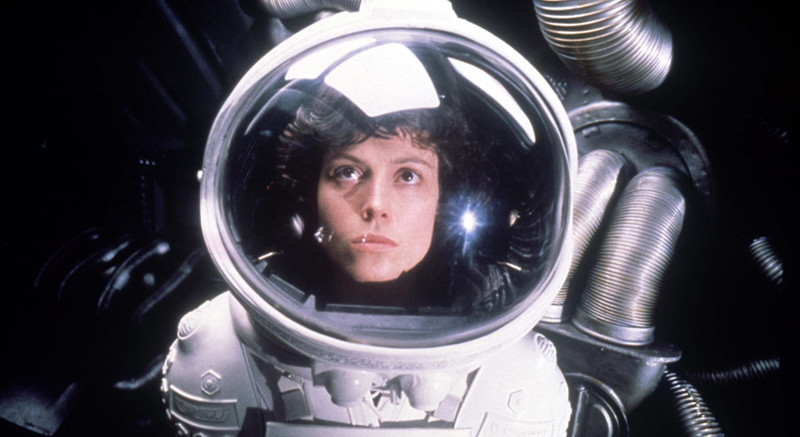
For science fiction cinema the 1970s, particularly the films pre-1977––when Star Wars was released and shifted the popcorn paradigm for better or worse––was a golden age.
Diverse filmmakers like Woody Allen, Robert Altman, John Boorman, John Carpenter, and Andrei Tarkovsky, as prime examples, took great risks, combined arthouse urges tempered with genre tropes, and cultural commentary, unpacking personal tales, frequently paying lip service to the formulaic studio system, and imagining possible futures steeped in satire, suspense, jet black jests, and even robotic cowboys.
Sci-fi, once deemed fodder for children and little more, had lost its baby teeth, grown up, and gotten big. The list that follows, though not definitive, contains an assorted lineup of first-rate fictions, each one emblematic of fantastic cinema at its best.
25. THX 1138 (1971)
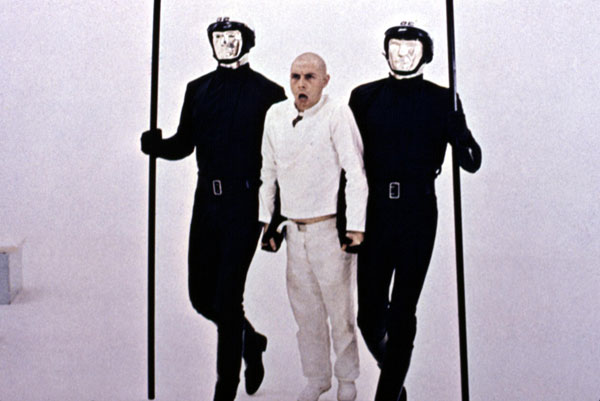
Developed from his student film, THX 1138 is noteworthy primarily for being the feature length directorial debut of George Lucas. A dark dystopian dirge set in a police state, it’s an inauspicious debut but an interesting one. Produced on a small scale by Lucas’ good friend, Francis Ford Coppola, THX 1138’s minimalist approach to set design was practical, and once combined with an eerie lowkey sound design, the bleak and sparse setting becomes all the more palpable.
Stars Robert Duvall and Donald Pleasence helped cement the cult status that would befit the production, particularly a number of years on after Lucas’ Star Wars films would make him the posterboy for imagined outer space settings and starcrossed melodramatics. THX 1138 isn’t always an easy watch, primarily due to the slow build and cumbersome subplot, but fans of Lucas will be intrigued and the downbeat matter-of-course is refreshing. It’s a minor classic from a major player.
24. Dark Star (1974)
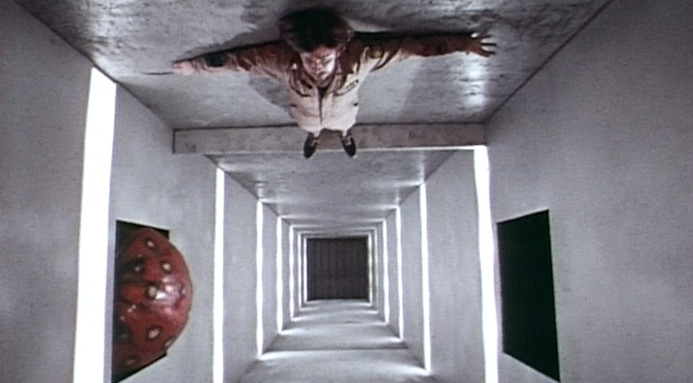
John Carpenter’s first flight as filmmaker––co-written with Dan O’Bannon (Alien), who also stars––is an uneven black comedy set in space, marred somewhat by poor acting and a miniscule budget, Dark Star nevertheless delivers some stylish smarts, a few guffaws, and stinging satire securing the cult status it sincerely deserves.
It’s a testament to Carpenter’s creativity that so much on screen stems from so little. A shoestring of around $60, 000 is used to maximum effect for a story set entirely in outer space, aboard the starship “Dark Star” in the mid 22nd century.
The ship’s hackneyed mission is to obliterate via AI-powered nuclear incendiary devices, unstable planets that could endanger human colonies. The ragtag crew are an odd assortment of surfers, hippies, and eccentrics, not to mention the ship’s mascot, an alien lifeform that looks little more than a beachball.
Fans of the BBC’s cult sci-fi TV sitcom Red Dwarf should note that that show’s creator, Doug Naylor, credits Dark Star as his inspiration for the series. Add into the mix Carpenter’s very first synth-driven score and you’re left with a genre spoof that delights in strangeness and technology running amok.
23. The Andromeda Strain (1971)
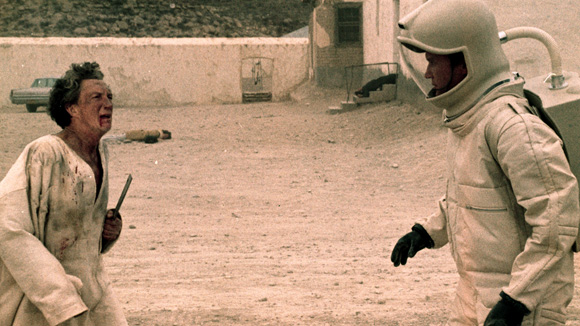
Adapted from Michael Crichton’s 1969 novel, The Andromeda Strain tells the chilling tale of a downed US research satellite containing a potentially deadly and certainly quite dangerous extraterrestrial microscopic organism. A hastily assembled group of top scientists led by a game cast including Arthur Hill, James Olsen, and Kate Reid must race to identify and contain the threat.
While the plot is somewhat drawn-out, director Robert Wise (The Day the Earth Stood Still, The Sound of Music) works wonders with numerous set pieces, using split screen sequences and special effects for maximum impact with winning results and a climax brimming with suspense.
22. Soylent Green (1973)
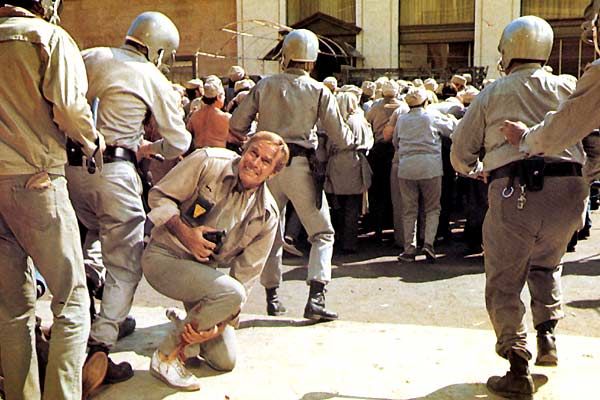
New York City, 2022. The city is hopelessly overcrowded as some 40 million people live there, and toil. Part detective story, political thriller, and bleak worldview of ecological collapse, Richard Fleischer’s film is cynical, brutal, and completely uncompromising.
“Try all of Soylent’s delicious flavors,” implores the seductive voice from the company’s commercial. “Soylent red, Soylent yellow, and new, delicious Soylent green. Made from the finest undersea growth.” Soon, NYPD Detective Robert Thorn (Charlton Heston) will be hot on the heels of Soylent CEO William R. Simonson (Joseph Cotten), and a startling conspiracy that will bring the synthetic foodstuffs giant and the people it serves trembling to their knees.
Something of a classic, Soylent Green not only courageously barks at environmental bullying––for 1973, this was very ahead of its time––and takes a mostly realistic stance in depicting a future frisked with avoidable but real environmental as well as sociopolitical catastrophe. Seen now, decades later, Fleischer’s film is still a pretty satisfying thriller and somewhat startling work of prophecy, too.
21. The China Syndrome (1979)
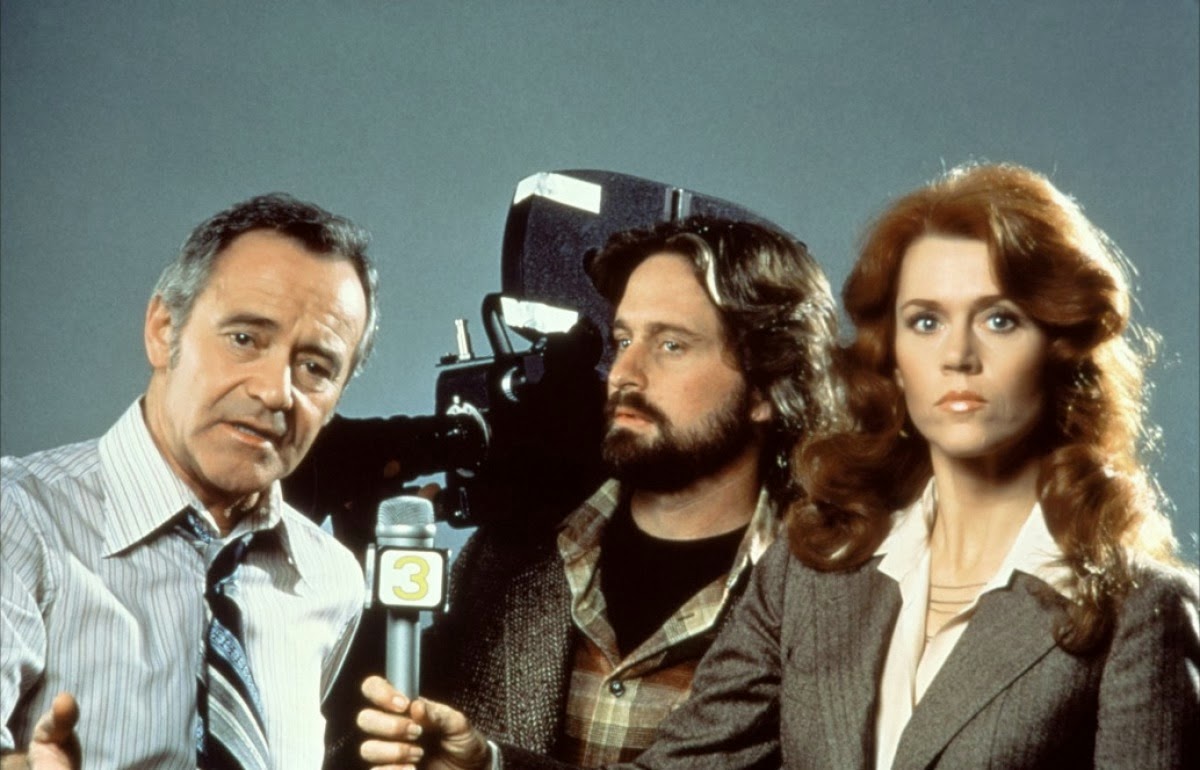
Director James Bridges, who also co-wrote the screenplay (along with T.S. Cook and Mike Gray), deserves full marks for injecting a grittily realistic docu-drama vibe to The China Syndrome, for almost certainly a sci-fi thriller has never come as close to real-life as this. In late March of ‘79 a malfunction at a nuke plant in Harrisburg, Pennsylvania––Three Mile Island––shook the nation, eerily echoing the events in Bridges’ film, which had been in cinemas just over a week.
As far as an unexpected publicity push, TMI makes The China Syndrome feel decidedly less science fiction-y perhaps, but as far as making the anxiety of the atomic age and the proliferation of nuclear energy more palpable, the incident drove the masses into cinemas for one of the decade’s most gripping political thrillers.
Jane Fonda is TV reporter Kimberly Wells who, along with her cameraman Richard Adams (Michael Douglas) are about to uncover a scandal while touring the Ventana atomic plant. Rounding out the A-list cast is atomic engineer Jack Godell played by an always on point Jack Lemmon, all at the ready in the face of looming catastrophe.
The China Syndrome is a sterling example of the paranoiac cinema that pervaded throughout America in the 70s and holds up as a prophetic and cynical story of spin, hysteria, and moral ambivalence.
20. Logan’s Run (1976)
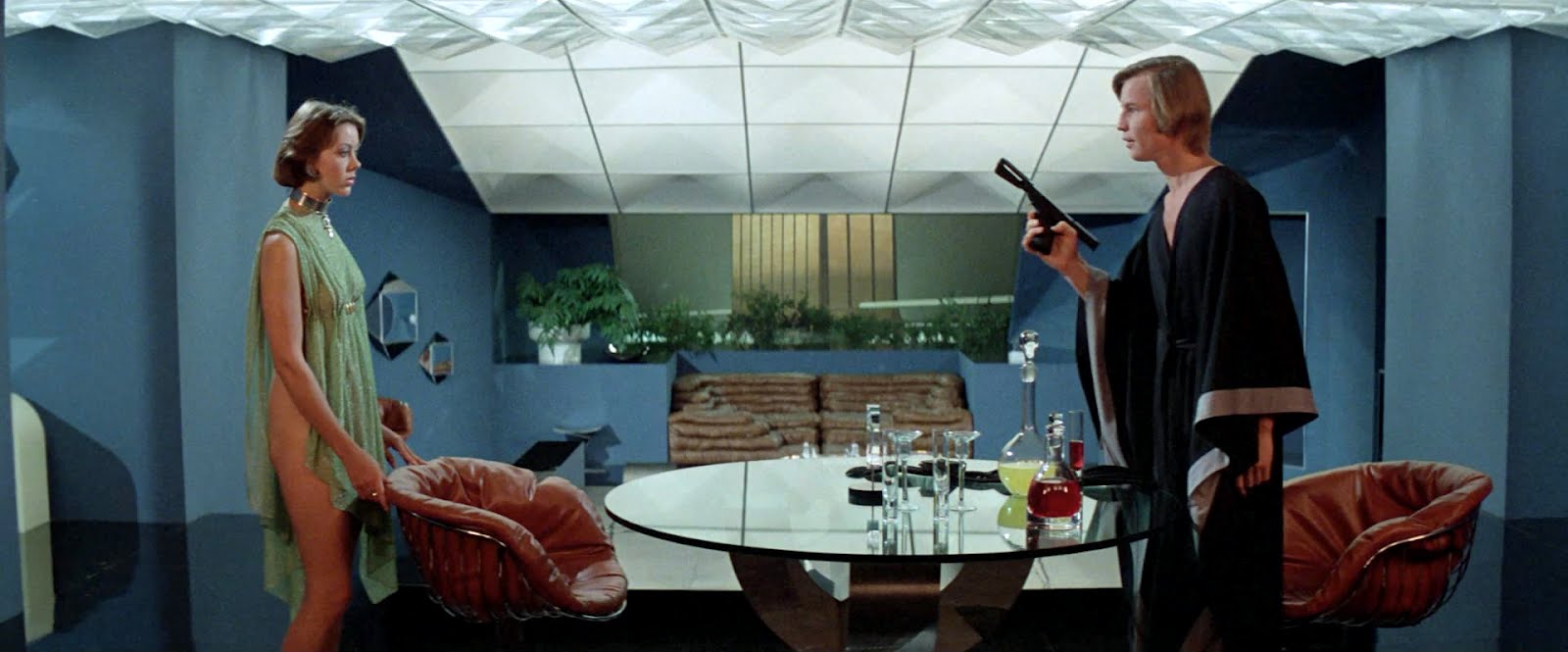
Set in a cynical future society where once you hit 30 your life is literally over, Michael Anderson’s Logan’s Run takes overpopulation paranoia to extremes with satisfying and charmingly dated results.
When Logan 5 (Michael York) rebels and flees it’s easy to view the superficial, youth-obsessed 23rd century culture he lives in as being oddly similar to our own, some 40 years on, as eerie prophecy. On the other hand, Logan’s Run is also overtly silly in its reliance on gadgetry and spectacle.
The visions of the future presented by Anderson have a dated 1970s feel that makes it retro-cool and the strange psychedelic cynicism on hand is also oddly enjoyable. Much of what makes Logan’s Run work is York and love interest Jessica 6 (Jenny Agutter) commitment to their frequently ridiculous roles.
Roger Ebert, who enjoyed the film a great deal, perhaps said it best: “Logan’s Run is a vast, silly extravaganza that delivers a certain amount of fun, once it stops taking itself seriously.”
19. Rollerball (1975)
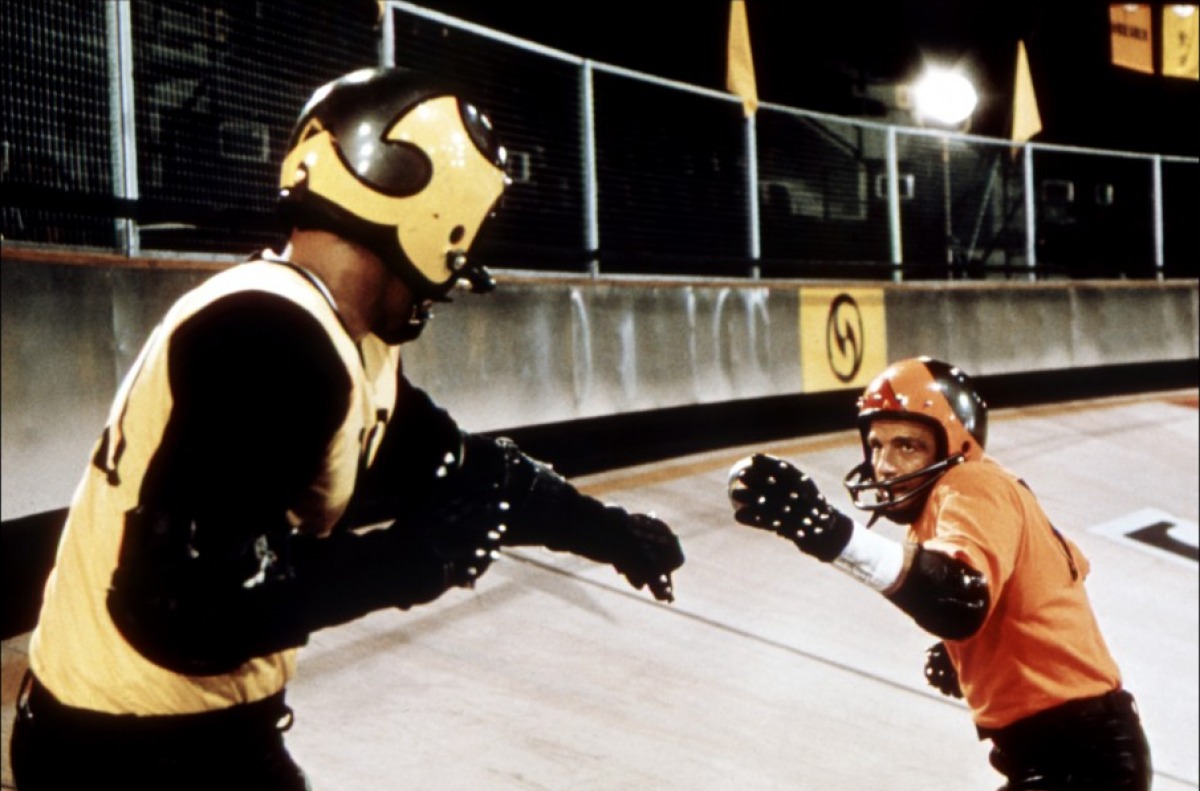
James Caan stars as über extreme athlete Jonathan E in director Norman Jewison’s futuristic fantasia Rollerball. Imagining a world ruled by Corporate States, Jewison’s film details a society obsessed with a violent new sport, rollerball, and its champion player (Caan) who must take flight or be doomed.
Black humor, technical brio, and a committed cast help buoy Rollerball beyond its gimmicky setup and surprising commentary on freedom and white privilege make for a heartier meal than one might expect. The action scenes set in the arena are largely where Rollerball comes to life, these fast-paced sequences thrill and captivate, overcompensating perhaps for the frequent flights of melodrama that don’t quite pack the same punch as the gladiator-like brutality on bold display.
18. The Visitor (1979)

Italian director Giulio Paradisi took a midnight movie approach to The Visitor, a grab-bag genre film that weds elements of sci-fi, horror, and hokum with largely satisfying and overtly silly results.
Perhaps a good place to start when mentioning The Visitor is its large ensemble cast, bafflingly assembled and giving it an honest go includes Glenn Ford, Lance Henriksen, Franco Nero, legendary director Sam Peckinpah, and Shelley Winters.
Why Paradisi summoned so skillful a lineup of stars is unclear, especially considering that they service a trite and gleefully OTT story that rips off plot elements from The Birds, The Exorcist, Close Encounters of the Third Kind, Star Wars, and more, resulting in a weirdly compelling, regularly nonsensical, yet fearlessly fascinating B-movie spectacle.
Fans of Fulci and Argento will appreciate fellow countryman Paradisi’s strange approach to action set pieces, production design, and freakout mayhem, and the story about an intergalactic traveler with a Christ complex, while never easy to follow, is a hoot. Perfect for party viewing, The Visitor doesn’t outstay its welcome, and connoisseurs of cult films will take particular delight.